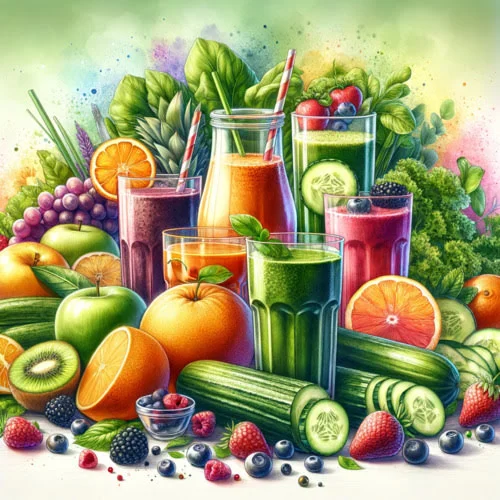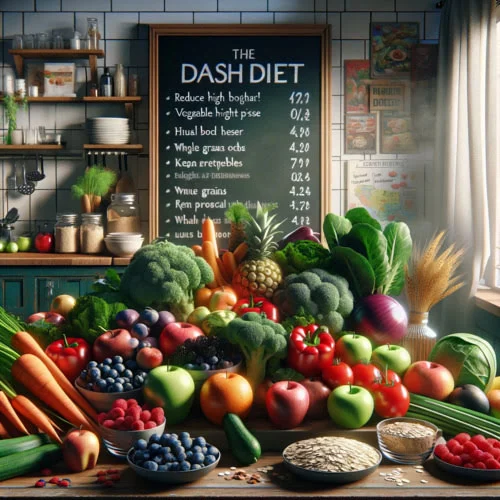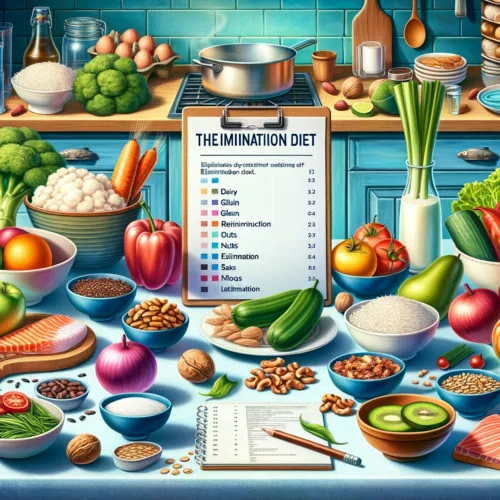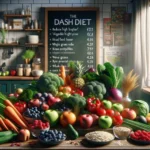Introduction to the drinking diet
Drinking diet is one of the popular approaches to losing weight and improving the overall health of the body. It is based on consuming various liquids such as water, juices, teas and soups as the main source of nutrition. Drinking diet offers a number of benefits including detoxifying the body, boosting metabolism and increasing energy levels.
| Pros of a drinking diet | Minuses of the drinking diet |
|---|---|
| Maintains hydration | Does not provide the body with enough nutrients such as protein, vitamins and minerals. |
| Can help you lose weight | May cause feelings of hunger and dissatisfaction due to food restriction. |
| Easy to do | Not suitable for long periods and does not promote a varied diet. |
| Can help cleanse the body of toxins | May cause unpleasant side effects such as dizziness and weakness. |
| Maintains a nutritional regimen | Not recommended for people with certain medical conditions or digestive restrictions. |
| Can be used for detoxification | Not conducive to teaching healthy eating habits and long-term weight management. |
| Allows the body to take a break from processed foods | May cause loss of muscle mass and decreased metabolism. |
- Benefits of a drinking diet
- Types of drinking diets
- Weekly menu for the drinking diet
- How to successfully complete a drinking diet
What is a drinking diet?
The drinking diet is a method that focuses on consuming liquids instead of traditional foods. Instead of solid foods such as meat, vegetables, or grain products, a drinking diet uses a variety of beverages that can contain nutrients and help the body cleanse and repair itself.
How does the drinking diet work?
The drinking diet works on the principle of restricting food intake and reducing caloric intake. By consuming only liquids, the body gets less energy from food and begins to utilize fat stores to meet energy needs. In addition, a drinking diet can help detoxify the body, improve digestion and overall health.
Benefits of a drinking diet

Detoxification and cleansing of the body
One of the main benefits of a drinking diet is its ability to help detoxify and cleanse the body. Consuming plenty of fluids, especially water, increases the elimination of toxins and toxins from the body through the kidneys and intestines. This promotes better functioning of organs and systems, as well as better overall health.
Support metabolism and accelerate metabolism
A drinkable diet can also support and speed up the body’s metabolism. Consuming certain beverages, such as green juices or herbal teas, can boost metabolism, improve digestion and promote fat burning. This can help with weight loss and fitness goals.
Improved digestion and energy levels
A drinkable diet can lead to improved digestion and energy levels. Consuming nutritious juices that are rich in vitamins and minerals can help the body digest food and absorb nutrients more easily. This can lead to better overall health, increased energy, and better overall body function.
Types of drinking diets
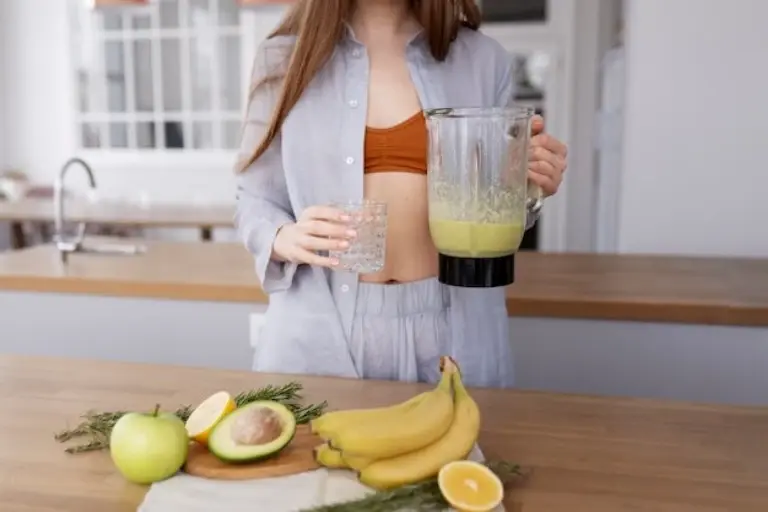
Mono-drinking diet
A mono-drinking diet involves drinking only one type of beverage for a certain period of time. For example, it can be only water or only fruit juice. At the same time, other types of food are completely eliminated from the diet. Mono-drinking diet can help to reduce caloric intake and promote rapid weight loss, but it should be used with caution and only when following the recommendations of experts.
Juice diet
The juice diet is based on the consumption of freshly squeezed juices from fruits and vegetables. Over a period of time, food is replaced with juices, which contain many beneficial vitamins, minerals and antioxidants. A juice diet can help in detoxifying the body, reducing weight and increasing energy. It is important to choose natural and fresh juices and make sure that the juice diet is balanced.
Detox diet
The detox drink diet combines a drinking diet and detoxification of the body. It involves the consumption of special drinks, often water-based, with the addition of herbs, spices and other natural ingredients. These drinks help cleanse the body of toxins, toxins and accumulated waste. A detox drink diet can help improve digestion, increase energy levels and overall body wellness.
How to follow a drinking diet
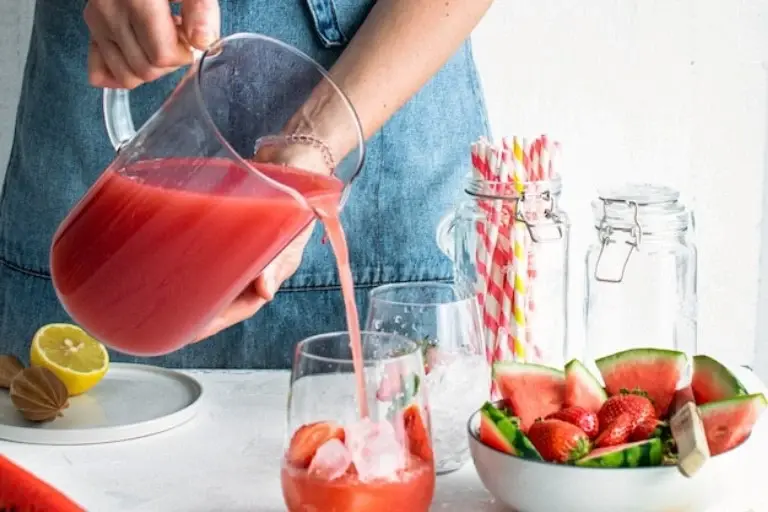
Drinking diet – rules and recommendations
Following a drinking diet requires some preparation and following certain rules and guidelines. First, it is important to consult with a doctor or nutritionist before starting a drinking diet, especially if you have any medical problems or dietary restrictions.
In addition, it is important to choose the right beverages for a drinking diet. Prefer fresh vegetable and fruit juices, natural teas and water. Avoid adding sugar or other sweet additives to drinks to reduce caloric intake.
You should also consider the duration of the drinking diet. Long periods of strict food restriction may be unacceptable for some people, so it is important to choose a drinking diet duration that suits your needs and capabilities.
Approximate diet on a drinking diet
A sample diet on a drinking diet can include a variety of beverages throughout the day. For example, you can start with a cup of hot lemon water in the morning, then consume fresh juices or lean soups throughout the day. It is also advisable to drink enough water to keep the body hydrated. It is important to monitor the quality and freshness of the beverages chosen, and ensure variety in the diet to get enough nutrients.
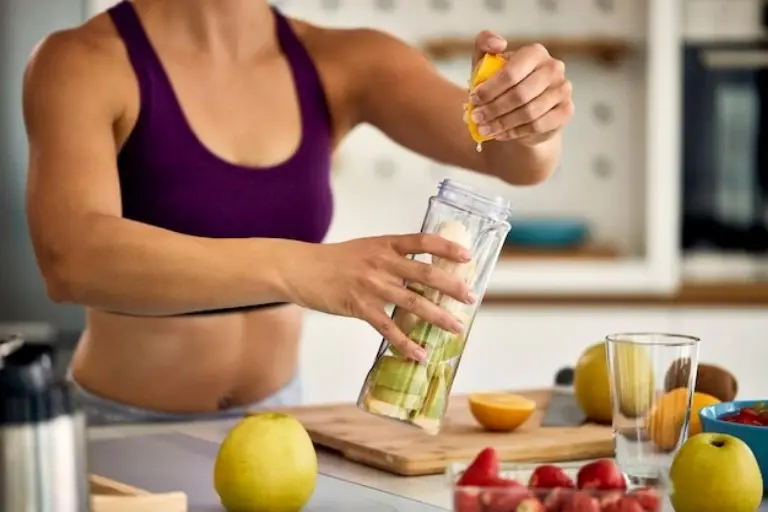
Drinking diet menu for a week
Please note that the calories listed are approximate values and may vary depending on the ingredients used and their amounts when preparing juices. It is also recommended that you consult a dietitian or nutritionist before starting a drinking diet to determine your individual needs and caloric intake recommendations.
Cautions and limitations
A drinking diet can be an effective tool for losing weight and improving overall body health, but it is not suitable for everyone. Some people, especially those with medical problems, low energy levels, or dietary restrictions, may not be advised to follow a drinking diet.
It should also be taken into account that a drinking diet, especially a strict and prolonged one, can lead to a deficiency of certain nutrients. It is therefore important to ensure variety in the diet and, if necessary, to consult a nutritionist or doctor to avoid negative consequences.
How to successfully complete a drinking diet

Gradual return to a normal diet
After completing a drinking diet, it is important to gradually return to your normal diet. This will help to avoid a sudden shock to the body and allow it to adapt to the new diet. Gradually introduce light and easily digestible foods such as fresh fruits, vegetables, porridge and lean proteins into your diet. Increase portions and vary your diet gradually to give your body time to adjust. This will help maintain your results and avoid a sudden regain of lost weight.
Drinking diet – maintaining a healthy lifestyle
After completing a drinking diet, it is important to continue to maintain a healthy lifestyle. This includes proper nutrition, regular physical activity and maintaining a harmonious balance between diet and activity. Try to include more fresh vegetables, fruits, whole grain products, lean proteins and healthy fats in your diet. Also, don’t forget to exercise regularly to help maintain muscles, strengthen your heart and burn extra calories. Maintain hydration by drinking enough water every day. These habits will help you maintain your results and ensure the long-term well-being of your body.
Conclusion
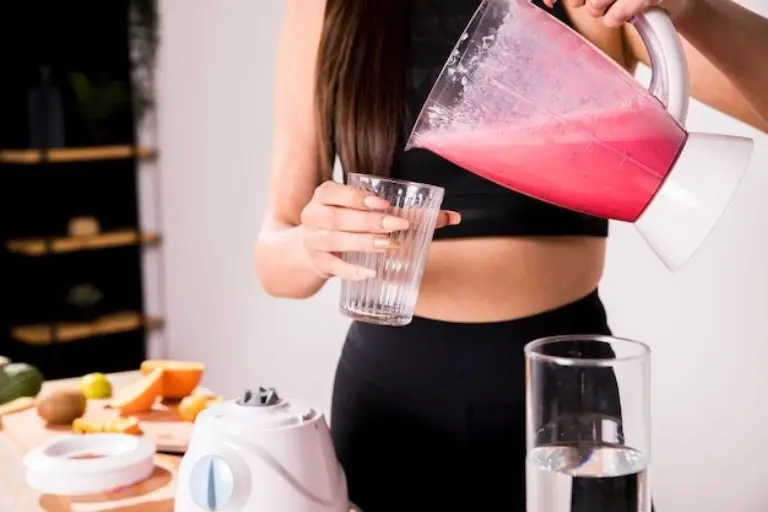
A drinking diet can be an effective way to lose excess weight, cleanse your body and improve your overall health. It is based on consuming a variety of liquids such as juices, teas, broths and smoothies and limiting food intake. The drinking diet detoxifies the body, stimulates the metabolism and improves digestion.
However, it is important to consult a doctor or nutritionist before starting a drinking diet, especially if you have any medical problems or food restrictions. It is also not recommended to do a drinking diet for a long period of time, as it may not provide all the nutrients you need to stay healthy.
It is important to remember that the drinking diet is not a one-size-fits-all solution for everyone. Every body is unique and the approach to dieting should be individualized. If you decide to try a drinking diet, follow the rules and recommendations, don’t forget about hydration and listen to your body.
Remember that healthy eating and an active lifestyle should become a permanent habit, not a temporary solution. Use the drinking diet as a starting point for making positive lifestyle changes and continue to maintain healthy habits after the diet is over. This is the only way to achieve long-term results and achieve health and well-being.
Frequent questions
A drinking diet involves consuming plenty of fluids and limiting or eliminating solid foods from your diet.
The basic principles of a drinking diet include drinking water, low-fat juices, green tea and other non-caloric beverages, and limiting caloric food intake.
Water, green tea, sparkling water, low-fat juices, herbal teas, broths, and non-caloric beverages are generally acceptable on a drinking diet.
A drinking diet can help cleanse the body, lose weight, reduce swelling, and aid digestion.
A drinking diet is usually followed for a few days to a few weeks, but the duration depends on each person’s goals and health.
A drinking diet can be nutrient and calorie deficient, so it is not recommended for long periods of time. It may not be suitable for people with certain medical conditions and requires caution.
Before starting a drinking diet, it is best to consult your doctor to make sure it is safe for your health and meets your medical needs.

